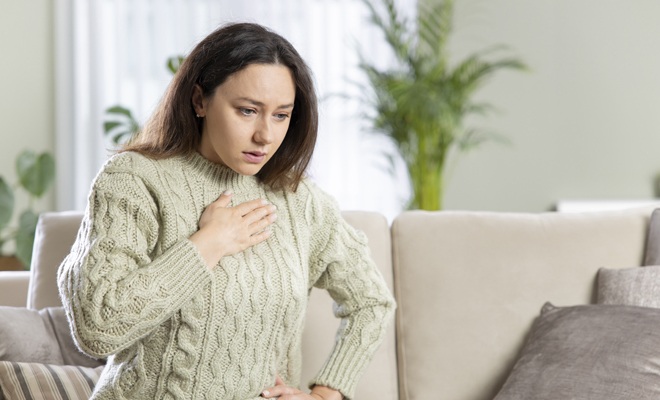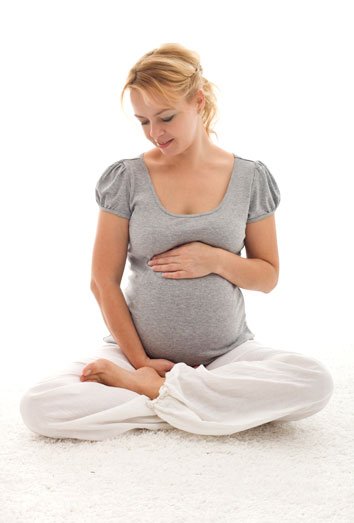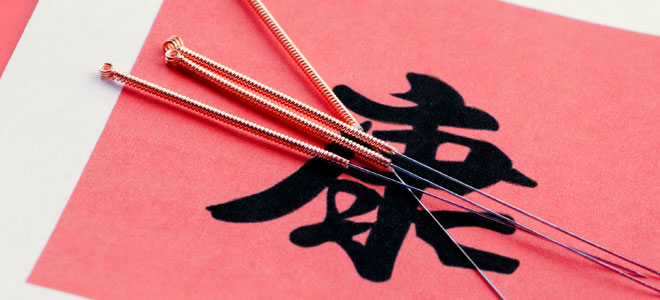Do you suffer from anxiety? Have you located this anxiety in a very specific area of your body, which is the chest? Feeling chest pain due to anxiety is one of the most frequent symptoms when we are going through a particularly stressful time or when we have acquired maladaptive thought patterns, among other causes.

This pain that you feel is something that can disappear if you treat its underlying problem: anxiety. But before delving into it, we will know what this type of pain is, what its nature is and from what physiological processes it originates.
In addition, we will also see what other symptoms are usually associated with this chest pain, all of them symptoms of anxiety. Keep in mind that three types of symptoms appear in anxiety: physiological (like this one), psychological or cognitive, and behavioral. But what often happens is that some feedback on others; Thus, a psychological symptom (for example, anxious apprehension, or “fear of one’s own anxiety “), may end up causing or reinforcing this chest pain.
What is anxiety chest pain?
Anxiety chest pain is a physiological symptom of anxiety, which translates into discomfort related to physiological activation in situations of stress or excessive nervousness. Likewise, this pain, which can also be accompanied by a sensation of pressure, translates into the perception of pain generated by the somatization of an anxious state.
When does it appear?
Chest pain due to anxiety can appear in different situations: occasionally or recurrently, during the day, due to anxiety itself (for example, when we suffer from generalized anxiety or generalized anxiety disorder [GAD]); in a context of anxiety (panic attack), as a prodromal of this, in the face of the perception of continued stress (without actually suffering a crisis), etc.
How is this pain perceived?
Chest pain due to anxiety can be perceived in different ways: as a stabbing pain (in the form of more or less continuous pricks) and with a different intensity, or as a more or less continuous pressure. The pain appears in different points of the torso, or in a generalized way.
How long does it last?
Like the type of pain and its intensity, its duration can also vary. Thus, it can disappear more or less quickly (most commonly it does not last more than a few minutes), or it can remain longer, regardless of whether we make physical effort or not.
Other symptoms associated with chest pain
Although sometimes chest pain due to anxiety appears in isolation, frequently, together with this pain, we can manifest other types of anxiety symptoms, such as: chest pressure, sweating, hyperventilation, numbness in the extremities, nausea, vomiting, dizziness …
These physical symptoms can be added to cognitive or psychological symptoms (for example: anguish, fear, feeling of unreality or losing control, intrusive thoughts, negative anticipation of the future…) and behavioral symptoms (for example: redness on the face, avoidance of certain situations that generate anxiety…)
Causes of Anxiety Chest Pain
The direct cause of anxiety chest pain, not surprisingly, is the anxiety itself. But if we go a little further back, the causes of this anxiety can be multiple: thinking excessively about the future, worrying about certain situations, not resting well, not managing time, suffering from an anxiety disorder (or another type) of foundation etc.
Thus, this pain is actually a somatization of one’s; through it, our body manifests or expresses said anxiety. Let us remember that anxiety is a state that implies an over activation of the sympathetic autonomous nervous system; when this system is hyper activated, symptoms such as those described appear.
In this way, when we feel stress, fear or anxiety, we generate high levels of adrenaline, due to the hyper activation of this branch of the nervous system, which is responsible for “preparing” our body to face potentially dangerous stimuli, or to run away from them
Anxiety attacks and muscle tension
In an anxiety attack, for example, this activation (or over activation) causes us to generate tension in the muscles, because we are preparing to respond quickly. Many times it is that tension that ends up leading to pain in the chest or in other areas of the body.
Hyperventilation
But there are more causes of that pain. When we are very scared and very afraid or anxious, our lung activity increases (we can even hyperventilate).hyperventilation implies an increase in the movement of the thoracic muscles and the diaphragm. If we add to this the previously explained muscle tension, then chest pain due to anxiety appears.
Breathing also plays its role here; in moments of great anxiety, we inhale briefly and superficially, which favors a sensation of suffocation. This, in turn, makes us more active and nervous, and makes us inhale even more times. All of this can also be related to chest pain.
Stomach and digestive disorders
Finally, with anxiety also come an alteration in gastric motility and a dilation of our digestive tract. All this can generate two effects: a pinching of the nerves in the torso and/or an accumulation of gain, which can go up to the chest area and generate that pain.
Anxiety chest pain treatment
When treating chest pain due to anxiety, we must go to the root of the problem, that is, anxiety. Thus, the treatment of chest pain entails a treatment of anxiety itself.
Cognitive behavioral therapy
In psychotherapy, there are different beneficial techniques when it comes to combating anxiety. Cognitive focuses on working with the patient’s dysfunctional or irrational thoughts, often negative anticipations of the future that generate anxiety.
Working on these thoughts implies that the patient learns to modify them. This type of therapy also includes other tools, techniques and objectives, all of them focused on promoting more adaptive patterns when facing certain events and on developing more appropriate coping strategies in general.
Physiological deactivation (relaxation and breathing)
Within cognitive-behavioral therapy we also find physiological deactivation techniques, which include: mindfulness, relaxation and deep breathing exercises, among others.
On the other hand, exercise, yoga and following healthy lifestyle habits (diet, sleep and rest, schedules, time management…) are also practices that reduce anxiety and with it, chest pain due to anxiety.
As we have seen, anxiety settles in our mind, but also, and above all, in our body, through various symptoms, such as chest pain. But anxiety itself is not dangerous; that’s why he tries to lose his fear of him. Learn to manage it; in reality, many times it makes sense, although it manifests itself in a less adaptive way. Find its cause, its meaning, and learn to dialogue with it.
If you suffer from chest pain due to anxiety, and would like to find healthy strategies to learn to manage this anxiety or nervousness, we recommend that you seek. Over time you will see how, as the anxiety disappears, so does the chest pain.






